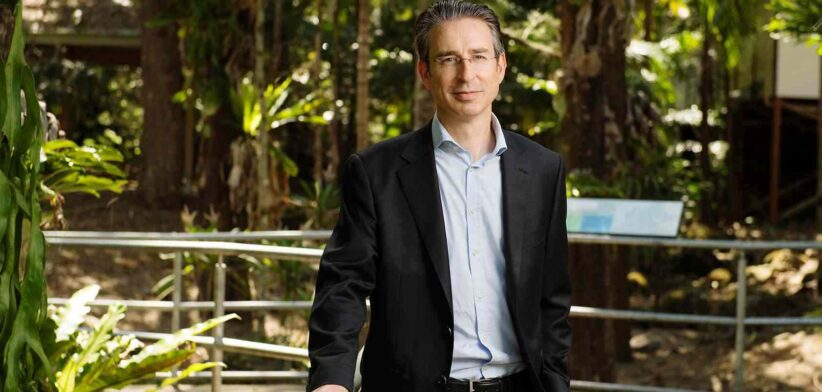A “revolution” in learning models and championing the important role of regional universities is at the heart of Southern Cross University’s 30th anniversary celebrations in 2024.
Southern Cross University Vice-Chancellor Professor Tyrone Carlin said the potential transformational impact of a university in regional areas should not be overlooked.
“(It is worth reflecting on) what our part of Australia would be like if a university such as this was not here,” he said in an interview to mark the anniversary. “Imagine what would not be here. Imagine the jobs that would not be here in this community.”
Professor Carlin said Southern Cross invested about $180 million a year in salaries into the Gold Coast/Northern NSW region where its campuses were based.
It also provided higher education pathways for students who may not be able to study without the opportunity being provided locally.
The University’s research base allowed a focus on areas of particular interest to the local area that might not necessarily attract the attention of metropolitan institutions.
Southern Cross University’s 30th year has coincided with an 80-place jump in the 2025 QS World University Rankings to achieve its best-ever result.
QS also honoured the University with its ‘Most Improved – Oceania’ Award which recognises institutions showing improvement in their ranking over a five-year period.
The achievement came on top of Southern Cross moving into the top 100 “young universities” in the world after a 70-place jump in a single year.
Professor Carlin said the University was proud of the success of the “Southern Cross Model”, something he described as a revolution in learning.
“We do things at Southern Cross University a bit differently to any other university in the country,” he said. “The Southern Cross Model moves beyond that very traditional rhythm and pattern of learning a lot of people would be familiar with on university campuses here and overseas.
“We’ve gone beyond the semester model, and we’ve configured all of our learning around six-week terms. We’ve reconfigured our entire approach to learning, teaching and assessment as part of that journey.
“We call it a revolution because it was a very, very stark break from the past. And it was a break from the past that had a very defined ambition. That ambition was all about our students, and that remains so.”
Professor Carlin said Southern Cross had made the changes based on an earnest attempt to provide the right learning model for its students, many of whom were the first in their families to study at university.
The institution was grounded in caring about the futures of its students and the impact of the research it conducted.
“We have a very special role to play,” Professor Carlin said. “It’s that direct focus on doing the things that matter, that really give us a special set of responsibilities and give us a very special place in the region.”
While the motivations for studying at university had not fundamentally changed, there was significant differences in the nature of study over recent decades.
Most students, for example, had “a lot more going on over and above what is happening at university than they would have a generation ago.”
“COVID also brought into stark relief some of those traditional conceptions of the idea of on-campus study versus off-campus study, Professor Carlin said.
“We used to, in our own minds, make quite bright line distinctions between what an on-campus student meant and what an online or off-campus student meant.
“But today, post COVID, you will see students congregating on campus, participating in learning, but not necessarily in one of the classrooms on campus. They may never go into one of those classrooms, or if they do, they may do that sparingly.”
Aside from the practical changes, most students were still looking for the opportunity to do things they could never dream of doing without a university education.
“They are looking to scare themselves a little and to open new doors to things that perhaps they didn’t know were there,” Professor Carlin said.
“They’re looking for new friendships, new relationships, new opportunities. Those things, I think, are quite consistent through time, but the context in which that is happening is more cluttered and has more nuance to it today.”
“I think there is a very, very substantial difference between being trained and being educated. Training is really important and there is a component of what we do, because we have many professional degrees where there are skills and technical knowledge that have to be imparted. That will change in its currency over time, and that’s something that they will have to continue to keep up with over time.”
“But to be educated is to have your eyes opened to a different frame of reference, a different way of understanding the world around you, a different way of interacting with those around you and frankly a different way of understanding your responsibilities in the context of the society that you are a part of,” Professor Carlin said.








